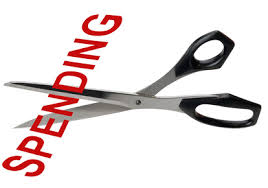Don't Overspend on Your Small Business
 Small businesses have a failure rate of nearly 80 percent - with reasons ranging from the economy changing to ineffective marketing strategies to high costs associated with running the business.
Small businesses have a failure rate of nearly 80 percent - with reasons ranging from the economy changing to ineffective marketing strategies to high costs associated with running the business.
Simply put, if you run out of money, it's going to extremely tough to keep your business up and running.
There are ways you can lessen your chances of running out of money, though, and that's by spending less than you're taking in and being financially prepared beforehand.
Many small business owners need to rely on loans, but what if instead you took on a second job for a year and put all the earnings towards your business?
This would perhaps allow you to start your business without any debt, making it easier to keep it running for a longer period of time.
Look to Save Some Green
Before you can save money on your small business, you have to take a cold, hard look at your finances in your day-to-day life.
Are you living below or above your means? Do you intentionally try to save money or do you spend money without a care in the world? If you're struggling with keeping up with your current lifestyle, it's going to be extremely difficult to save money and budget for your small business.
As the following article, “5 Ways to spend less than you earn” looks at, you can cut your costs by refinancing high-interest loans, driving a less expensive vehicle, cutting back on vacations, switching energy suppliers and cutting out "luxuries" such as takeout dinners, going to expensive coffee shops and spending lavishly on clothing.
Cut back in your own life first, and then your business will follow.
In order to trim your small business expenses, you can:
- Advertise for free - Depending on your type of business, you may be able to eliminate advertising expenses completely. Free sources include Craigslist, word of mouth referrals, putting flyers in your local coffee shop, using social media and more.
- Purchase used equipment - Until your business has proven successful, save money on equipment by buying used instead of new. Used equipment and office supplies can work just as well as something brand new, but can cost half as much.
- Avoid business loans - If at all possible, avoid taking out a loan to get your business off the ground. Work from your home instead of an office at first, hire one employee instead of an entire staff and don't quit your day job just yet. Save as much as possible and cut as many expenses as you can before relying on a loan.
- Hire interns or telecommuters - If you need to hire people immediately, consider hiring a college intern or a new grad that is willing to learn and work for lower pay than someone with 10 years of experience. Telecommuters are also a good option, as you don't need to worry about providing benefits or a set number of hours. Telecommuters usually work on a project-to-project basis, giving you the option of using them as much or as little as you need.
Being an entrepreneur requires you to wear a variety of hats, especially in the beginning.
By avoiding loans and saving money from the start, you are increasing your chances of being successful in your small business venture.
Sarah Brooks is a freelance writer living in Charlotte, NC. New to the city, she enjoys exploring the area, trying new restaurants and spending time outdoors. She writes on a variety of topics including small businesses, personal finance and health insurance.

 Delicious
Delicious Digg
Digg StumbleUpon
StumbleUpon Propeller
Propeller Reddit
Reddit Magnoliacom
Magnoliacom Newsvine
Newsvine
Comments
Post new comment